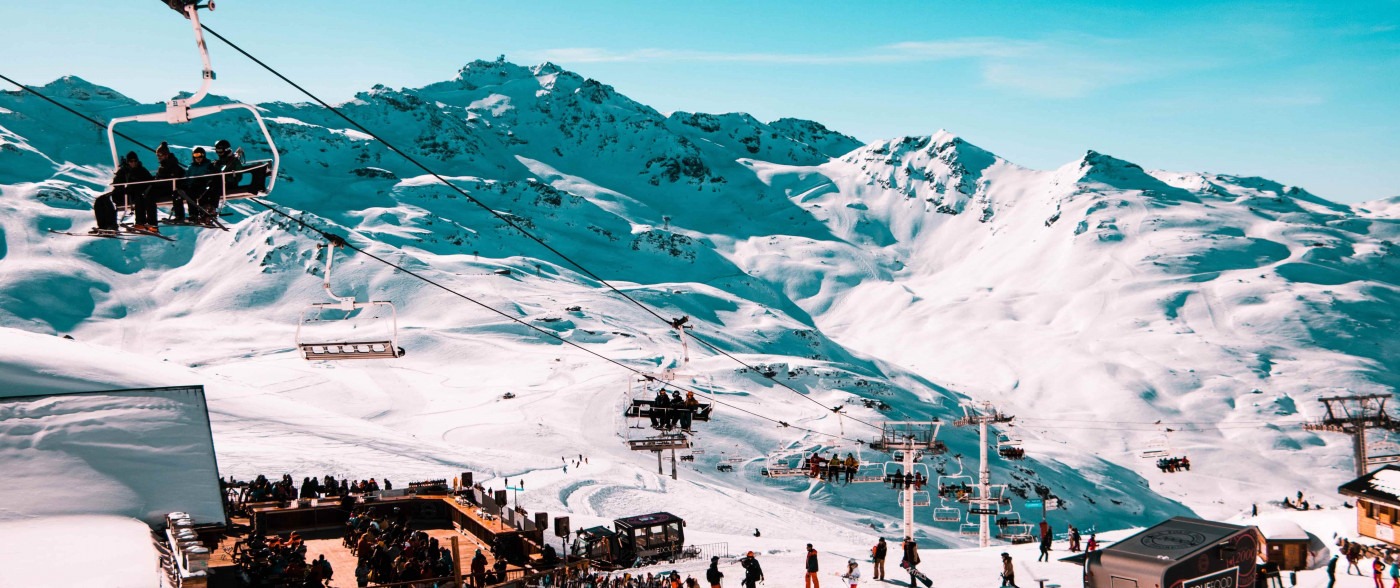Is climate change threatening skiing into becoming a forgotten luxury?
The once beautiful, crisp, and snow-capped Alps, rolling hills of lush snow, look considerably different at this time of year. Many of Europe’s most popular ski resorts are unseasonably green and marshy. These reports have been linked to a surprisingly warmer climate and abnormally absent snowfall across the continent. So, if you have ever dreamt of witnessing these magnificent sights, you’ll now be stuck waiting for your dreams to slowly melt away along with the snow.
January, comfortably seen as the prime ski season, saw record-breaking high temperatures across several major ski resorts. Switzerland, for instance, experienced a regular temperature of 7°C, and unfortunately, its peaks lay at the mercy of this heat. Weather forecaster MeteoSuisse expressed bewilderment in their blog, stating that the weather “could almost make you forget that it’s the height of winter”.
The weather “could almost make you forget that it’s the height of winter”
The weather we are seeing is akin to a heatwave, but a heatwave that seemingly does not want to give up. This irregularity is reminiscent of the recent peculiar autumnal climate that saw a few cold days, only to immediately switch to strangely warmer weather. These sudden changes are almost certainly the workings of climate change, although scientists have suggested that Southern Oscillation cycles have played a part. Irregular wind patterns in the Pacific may lead to warm spells in Europe during wintertime when the La Nina cycle is in full swing, therefore potentially explaining the absence of an abundance of snow that the great Alps have been accustomed to for centuries.
This change in climate has been catastrophic for a big number of resorts. As a result, many had no choice but to shut up shop for the first time since COVID. Wim Thiery, a climate professor at the University of Brussels, expressed his worries about the fate of ski resorts in the Alps at the end of the century. He predicts they could definitely “be over” and further added that the only solution would be the reduction of “fuels that trap heat in the atmosphere”. This has been supported by studies undertaken in 2017 at the Institute for Snow and Avalanche Research, warning that the Alps themselves are set to lose “70% of their snow cover by 2100” if global temperatures rise at the rate they currently are.
If little change is enacted, it could not only be harmful to tourists who want to enjoy some quality holiday time abroad, but it would also be a great hit to Switzerland’s national economy. Smaller local economies also rely on tourists’ consumption. Purchases from local businesses around ski resorts and the hospitality industries all will be slashed at the hips, soon to be in tatters by the ever-present, merciless snow-shrinking climate. The Alps generate as much as €50 billion and are the site of roughly 12% of jobs in the area. At some elevation levels, business remains as usual, but this is only for those fortunate enough to have their resorts high up. Lower-level ski resorts are the ones suffering the most from this.
The Alps themselves are set to lose “70% of their snow cover by 2100” if global temperatures rise at the rate they currently are
–Institute for Snow and Avalanche Research
If this all sounds and looks like a bleak and stark image, it’s because it is. However, there is some solace in this story. Ski resorts across the USA are now looking to make an impact to save their potentially volatile and dying industry that will likely be swallowed whole by changing climatic circumstances. These resorts are attempting to use their prominence to influence national legislation. This is being conducted through some individual resorts in the US. Other resorts look to make demands in shifting how business is run, expecting more from patrons and their own business practices to reduce emissions. All in all, this could be cause to create a snowball effect of resorts across the globe determined to do the same in order to save their industry.
Despite this collaborative effort, a great deal of pessimism – to an extent, reality – dampens this faint squib of hope. Dr Vikki Thompson, a climate scientist at the University of Bristol, surmises that this demise of ski resorts will continue despite any “big reductions in carbon dioxide output into the atmosphere.” It looks as though skiing really is set to become an extremely volatile industry and therefore may lose the battle against climate change in the long run.

Comments